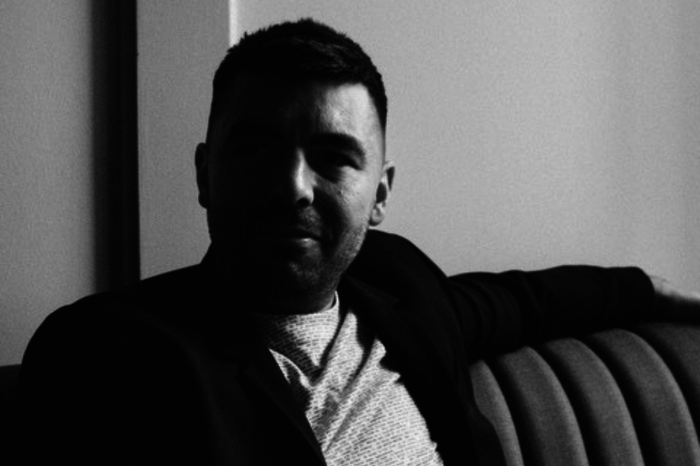Does KAOS reign over the frenzy of Ancient Greek pop culture retellings?
Netflix’s new series KAOS is the latest in what seems to be an avalanche of mythical retellings both on and off screen, argues Lili Fairclough

Netflix’s new series KAOS, depicting the Olympian family in turmoil, as mortals reevaluate and defy their relationships with them, is the latest in what seems to be an avalanche of mythical retellings both on and off screen.
The series, created by Charlie Covell and narrated by Stephen Dillane as the immortal dissident Prometheus, follows the lives of various mortal heroes and heroines bound by a prophecy that, up on Olympus, is terrifying the King of the Gods and threatens to unbalance the cosmos. The cast is a great blend between famous industry staples like Jeff Goldblum and Billie Piper, and up-and-coming stars like Misia Butler and Nabhaan Rizwan. Nabhaan Rizwan as Dionysus was one of my favourite performances of the series; the duality of Dionysus as a painfully mortal god in inner turmoil contrasted with goofy humour and his affection for Dennis the kitten is, in many ways, a modern echo of Classical Athenian theatre portrayals of Dionysus. Both show his terrifying power, and comedic absurdity. Misia Butler’s Caeneus is also an incredibly impressive portrayal, weaving together ancient and modern stories of gender identity in a touching and empowering way, that I hope will inspire more diversity in on-screen narratives.
“Mythological ‘canon’ does not really exist”
When it comes to mythological accuracy, how do KAOS and other popular reinventions fare? You might expect that, as a part Classics student, I would be nitpicking each diversion and addition that KAOS makes in its show, criticising anything not lifted directly from Homer or Aeschylus. And it is true that I found it irritating that the show’s refrain of “Celestis, Divinitus, Insania, Vero” is spoken in Latin, given that the earthly scenes are set in Crete, and the series is about the Greek deities. But in terms of the show’s larger experimentation with mythological storylines, these differences are refreshing rather than unfaithful. Mythological ‘canon’ does not really exist, and while there are common threads with most tellings of myths, they are used as springboards for each author to create their own interpretation that speaks to their audience
This seems to be happening across the artistic field: a widespread foray into ancient cultures, with artists of many mediums tackling the seemingly endless opportunities these myths provide. In recent years, Hadestown has been one such iteration, winning 8 Tony awards and much critical acclaim. It transplants the Orpheus and Eurydice myth into 1930s Depression-era America, and makes a strong indictment against exploitative bosses and capitalism. The use of ancient myths and cultures in theatre to impart contemporary lessons has been a staple of the genre since its inception in Classical Athens. In a similar vein, Epic: The Musical, created by Jorge Rivera-Herrans, utilises the democratisation of artistic talent through apps like TikTok to give new voices and depths to a variety of characters from Homer’s Odyssey who had previously been sidelined.
“KAOS skilfully weaves a thread between the ancient and modern”
One of the most interesting aspects of KAOS is the way it plays with modern and classical versions of myth through aesthetic choices. Aurora Perrineau as Eurydice plays a pop singer’s wife, Orpheus (Killian Scott). Their tale is set in a modern-day Crete, filled with high-rises and mega-concerts. In the show, Euridice dies as a result of a car accident, but her jewellery references ancient versions of her myth. She wears a golden snake earring and ring, a reference to some of the oldest versions of the myth where her death comes from a snakebite. Dionysus’ flamboyant outfits not only fit his character as a modern party boy, but also his ancient cult followings. In one scene, he wears a shirt with small leopards dancing across it, referencing his maenad followers who would drape animal skins over their dresses as they worshipped. Similarly, the show is filled with music from a variety of artists and genres, showcasing the array of modern talent and simultaneously continuing the tradition of accompanying music that ancient epic and theatrical performances relied on. Visually and musically, KAOS skilfully weaves a thread between the ancient and modern, paying homage to the generations of classical artistry, while weaving its own colours into the cloth.
While in KAOS, the power and survival of the gods come from worship and soul-harvesting, in our 21st century world, I would argue that the endurance of ancient mythologies relies on reinvention and reinterpretation. KAOS, Hadestown and others are the start of a new generation of reimaginings, one that I hope will only grow with time.
 News / Eight Cambridge researchers awarded €17m in ERC research grants27 December 2025
News / Eight Cambridge researchers awarded €17m in ERC research grants27 December 2025 News / Downing investigates ‘mysterious’ underground burial vault 29 December 2025
News / Downing investigates ‘mysterious’ underground burial vault 29 December 2025 Lifestyle / Ask Auntie Alice29 December 2025
Lifestyle / Ask Auntie Alice29 December 2025 Sport / Hard work, heartbreak and hope: international gymnast Maddie Marshall’s journey 29 December 2025
Sport / Hard work, heartbreak and hope: international gymnast Maddie Marshall’s journey 29 December 2025 Interviews / Meet Juan Michel, Cambridge’s multilingual musician29 December 2025
Interviews / Meet Juan Michel, Cambridge’s multilingual musician29 December 2025









